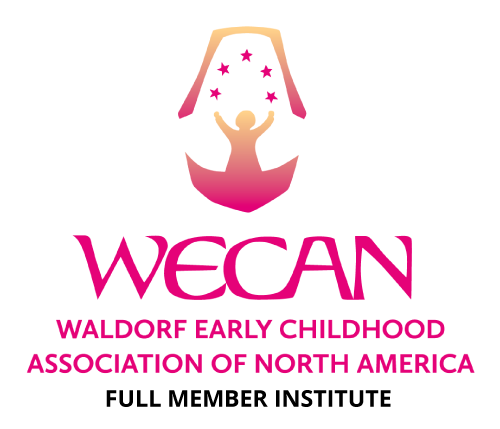What is the difference between Sunbridge’s programs and its courses?
Sunbridge’s teacher education programs are sustained courses of study that confer teaching credentials often required by hiring bodies. Prospective program students must meet certain requirements, as specified by each program, before undergoing an application process which, if positive, results in an offer of admission and subsequent matriculation. Our Early Childhood, Elementary, and High School teacher education diploma programs fall into this category, as do our short-term certificate programs in Music and World Language teaching.
Sunbridge’s courses and workshops are 1- to 7-day learning opportunities providing professional development, continuing education, or introductory experiences for those either working in Waldorf education or who are interested in learning more about Waldorf education. There are generally no background requirements required for attendance; participants simply register, pay a fee, and attend the event. Our Summer Series courses fall into this category.
How long does it take to complete a Sunbridge teacher education program?
It varies by the program. All our low-residency offerings are designed to accommodate working adults who live in all parts of North America and beyond. Please see each individual program section for specific information and schedule.
Is Foundation Studies a pre-requisite for acceptance and enrollment in Sunbridge teacher education program?
No. Foundation studies are integrated throughout the curriculum of all Sunbridge teacher education programs. While we expect applicants to have some familiarity with Waldorf education before making the decision to apply and enroll, you need not have taken any foundation studies coursework prior to becoming a Sunbridge program student.
What does the teacher education curriculum include?
Sunbridge’s teacher education programs include a deep exploration of child and human development, development of a teacher’s contemplative capacities, exploration of pedagogical approaches and skills, studies in the arts, instruction in how to work in a group of colleagues, and practical learning in the classroom with experienced teachers.
Does Sunbridge offer master’s degrees?
Through our partnership with Empire State University of the State University of New York, students and graduates of Sunbridge’s Early Childhood and Elementary Teacher Education programs may elect to apply their Sunbridge studies toward earning a fully-accredited master of education degree or master of arts in liberal studies degree with a self-designed concentration in Waldorf Education, conferred by SUNY Empire. Read more about these master’s degree options.
Is Sunbridge accredited?
Sunbridge is a full member of the Association of Waldorf Schools of North America (AWSNA) and the Waldorf Early Childhood Association of North America (WECAN), and is a partner of Empire State College of the State University of New York (SUNY). The institute is licensed under the New York State Department of Education within the Bureau of Proprietary School Supervision (BPSS).
What does it cost to enroll in Sunbridge?
Tuition can be found on each program page.
What kind of financial aid is available?
Financial aid is available in the form of grants and loans. Sunbridge is committed to helping make Waldorf teacher education possible, and each year we look for new and additional ways to support our program students in their studies. Please refer to our Financial Aid page for a listing of aid available this year. Also, please feel free to get in touch with our Finance Office to explore possibilities.
Where is Sunbridge Institute located?
We’re on the campus of the Threefold Educational Center in the village of Chestnut Ridge in Rockland County, NY, just 30 miles northwest of NYC. This historic and bucolic campus, home to a number of organizations and initiatives based on the work of Rudolf Steiner, includes woods, streams, and trails, a swimming pond, a working farm, and the first biodynamic garden in North America. The setting is both restorative and inspiring.
Is there housing available on campus?
Yes! Please see our Housing and Meals page to learn about living and dining options while studying at Sunbridge.
Can I bring my family with me to campus?
It depends. We are a family-friendly campus, and our students’ families do enjoy being here, especially during the summer months. It’s important to note, however, that children cannot accompany you to class. If you do bring your baby or child with you, you must also bring someone—a partner, grandparent, nanny—who can take care of them while you’re in class. This works quite well for some students (our Campus and Community page discusses options for what your family can do in our neighborhood while you’re in class); other students, however, find they can focus more on their studies when they are here alone and that their children are happier staying with a caregiver in the familiar environment of their own home. We leave that up to you!
What is the likelihood that I can find a job as a Waldorf school teacher?
The job market for Waldorf teachers is excellent. Each year, the number of job openings for Waldorf educators far exceeds the number of graduates from Waldorf teacher education programs. In US Waldorf schools alone, there are hundreds of job openings every year for qualified individuals. To get a sense of what is available now, take a look at online job boards such as WaldorfEducation.org or WaldorfToday.com.
How is teaching in a Waldorf school different than teaching in a conventional school?
Among the key differences are these:
- The role of the Waldorf teacher, who serves as the child’s bridge to the world, changes in accordance with the child’s ever-changing stages.
- Because young children have an innately imitative nature, Waldorf early childhood educators engage in meaningful activity in their classroom settings so as to be examples worthy of imitation. Knowing that young children learn best through play and direct experience, Waldorf parent-child, nursery, and kindergarten educators create warm, loving environments that enable young children to explore the world around them and engage in free, imaginative play that develops their capacities for future academic learning. There is no formal academic instruction during these years.
- Because the elementary-age child seeks the acceptance and authority of parental figures, Waldorf class (grades 1-8) teachers stay with the same cohort of students for a number of years, developing strong, familial connections with the children as they move through the grades together. Class teachers—who are prepared to teach all subjects—and high school teachers—who are subject specialists—begin each school day with the “Main Lesson,” a one-and-a-half- to two-hour period focusing on a particular academic topic within the humanities, math, and science disciplines, changing topics every three to four weeks. The main lesson is presented without textbooks, in a personal exchange between teachers and students that is designed to engage head, heart, and hands.
- Waldorf schools are self-governed, giving the same individuals who teach the children the authority to shape curriculum and school policy.
How many Waldorf schools are there?
There are about 1000 Waldorf schools and nearly 2000 Waldorf early childhood programs located in 60+ countries around the world, including about 170 schools and 250 early childhood centers in North America. Waldorf methods are also being adopted by many US public and charter schools.
What is Waldorf education?
Waldorf education is a world-wide independent school movement developed in Germany in 1919 by Austrian philosopher, social reformer, and visionary Rudolf Steiner. Among the fastest-growing educational movements in the world, Waldorf education is based on the developmental stages of childhood. In a Waldorf school each child is viewed as a whole being, with attention paid not only to a child’s intellectual capacities, but to their or her physical, emotional, spiritual, and moral development. Waldorf education has been getting a lot of media coverage lately due to its rejection of high-stakes testing and its interest in developing individuality and creativity in an otherwise increasingly mechanized world. (Read more about Waldorf education.)
What does it take to become a Waldorf teacher?
Waldorf teachers share an interest in the development of the human being, a desire to help young people develop their individual, innate potential, and a wish to be of service to the world. The important thing to remember is that Waldorf teaching is not about being the best at everything, but about continually striving to become better.




